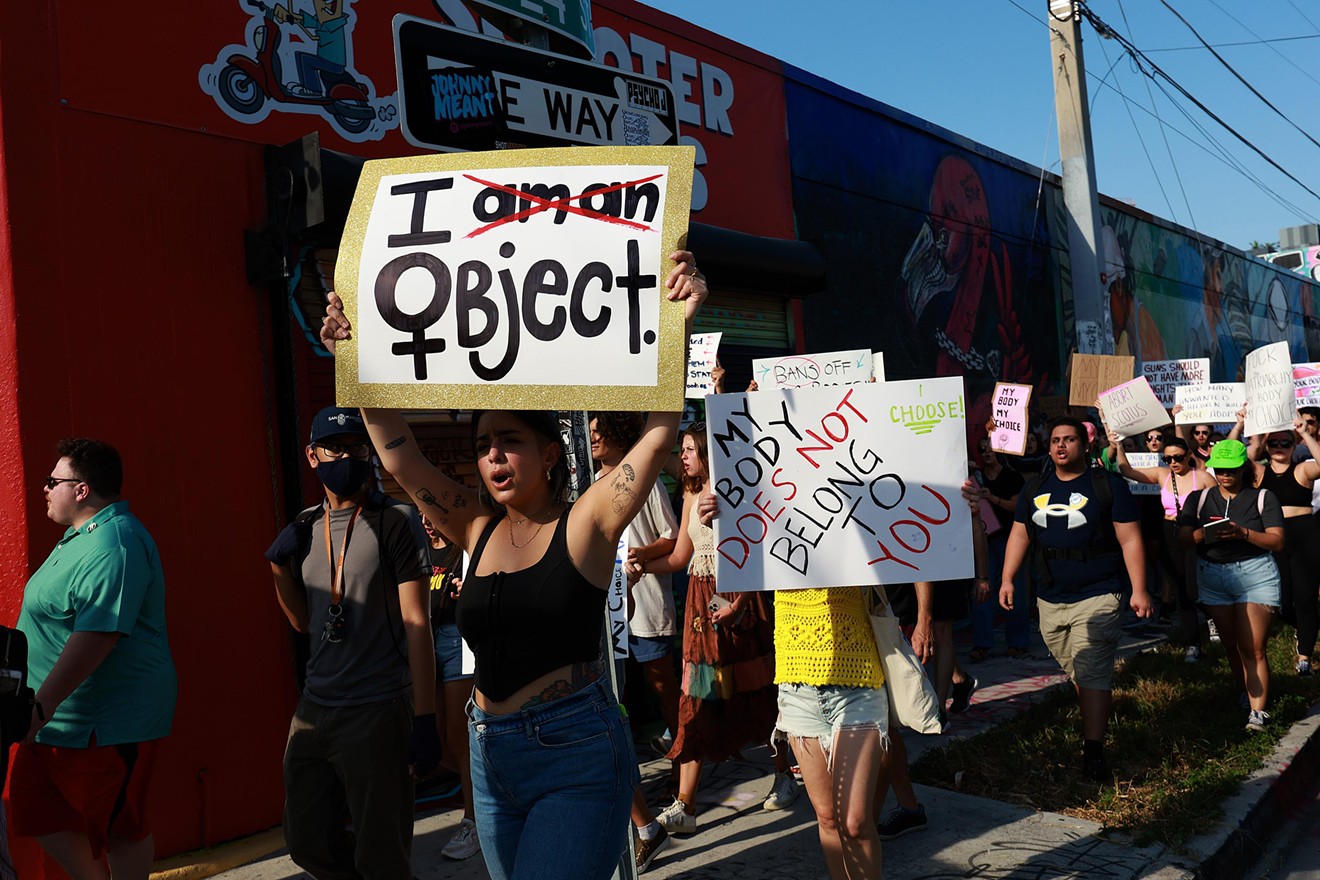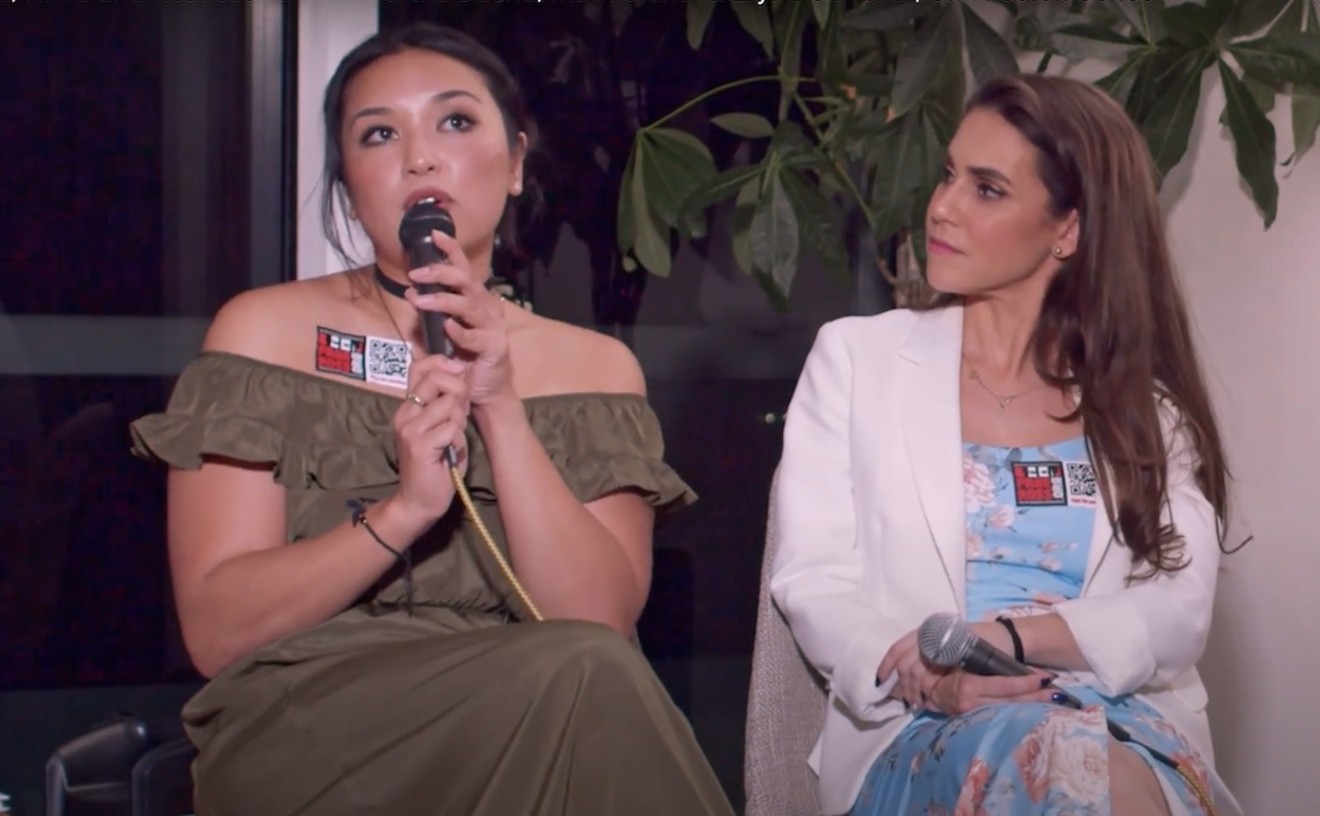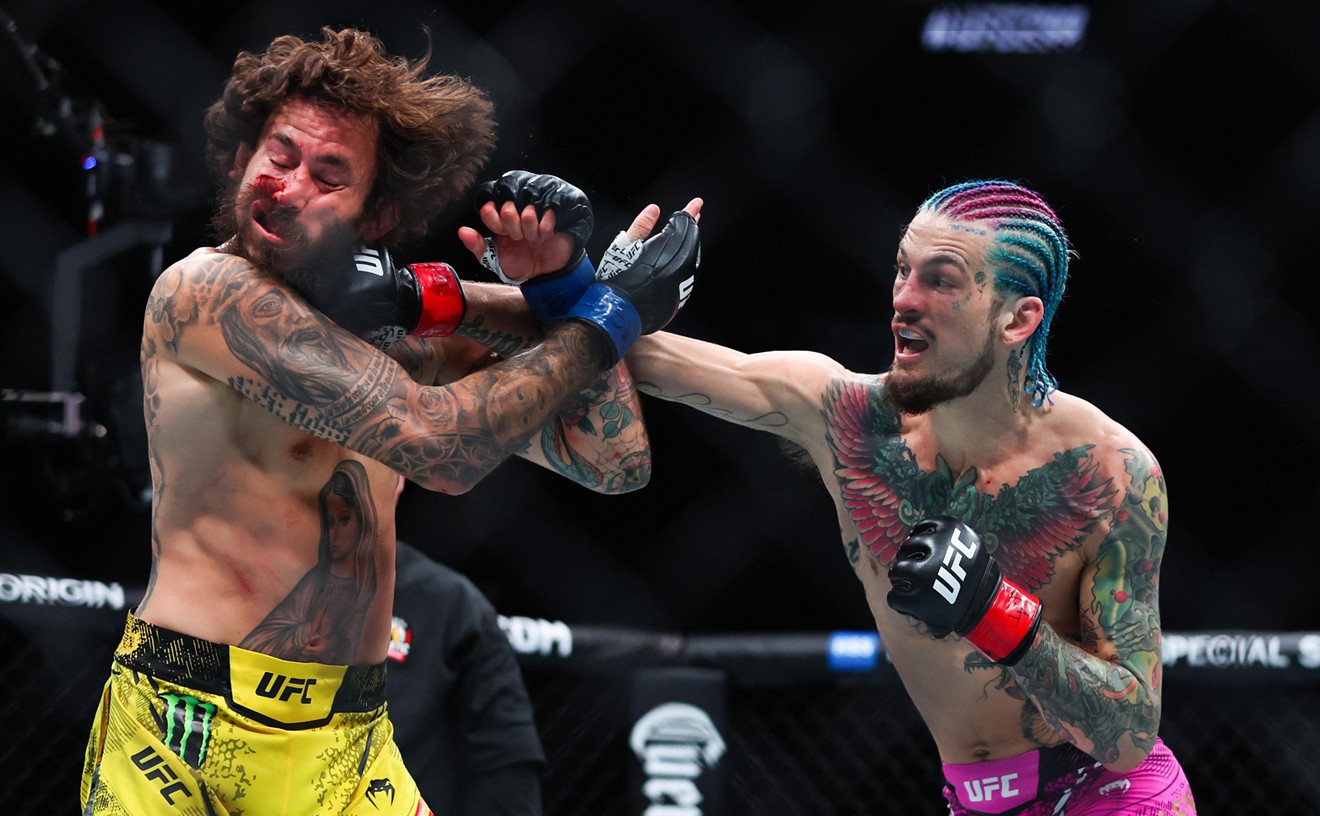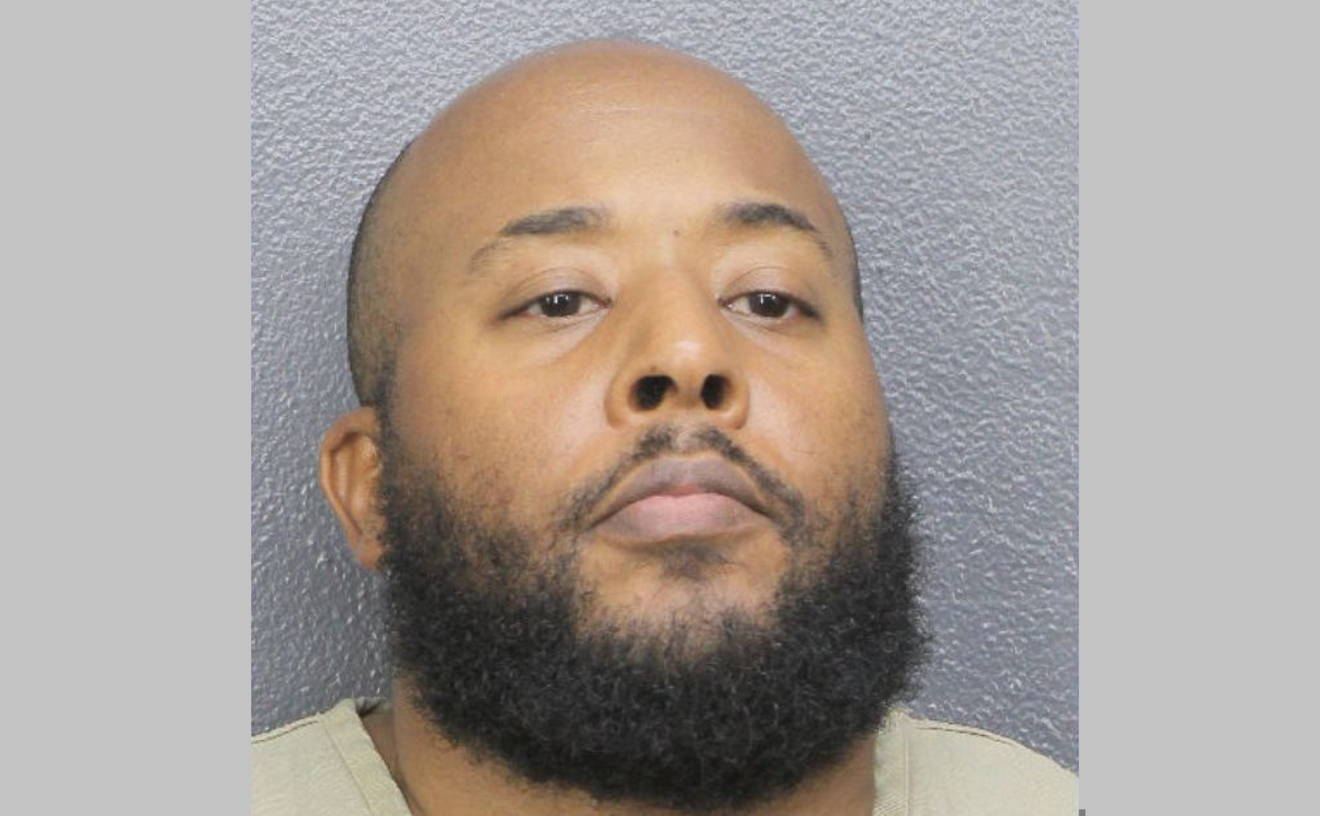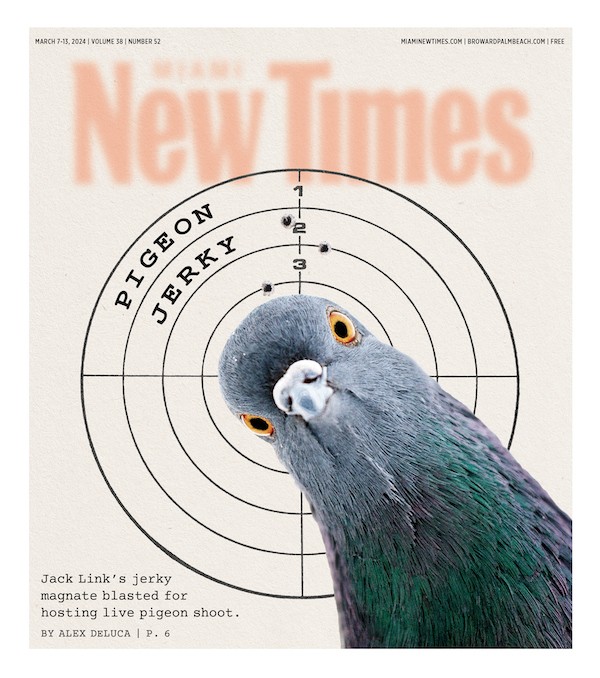Courtney Brewer, an attorney representing Floridians Protecting Freedom, told the court that the group has gathered more than enough voter signatures to put the item on the ballot. She noted that upon striking down the constitutional right to abortion in the landmark 2022 decision in Dobbs v. Jackson Women's Health, the U.S. Supreme Court directed states to make their own determinations on the issue.
"Nearly a million Floridians and counting have made clear that they want to vote on the amendment before this court. This amendment follows the directive given by the U.S. Supreme Court in Dobbs: that the people should decide how their state may govern abortion."
On behalf of Moody's office, Senior Deputy Solicitor General Nate Forrester argued to the Florida justices that the ballot item will mislead voters to believe that it will void federal restrictions on partial-birth abortions. Justice John Couriel responded by pressing Forrester on whether he was centering his case on claims of dodgy text or the attorney general's fundamental objection to the ballot item's scope.
"You're saying this is a wolf. And a wolf it may be. But it seems like our job is to answer whether it is a wolf in sheep's clothing. That's all we get to do," said Couriel, an appointee of Gov. Ron DeSantis.
Forrester maintained that the item runs the risk of leading voters to believe "there is no federal law that is going to get in your way" on state-protected abortions.
The attorney general's office previously argued in its briefs that the ballot item's wording is vague and fails to clearly define the terms fetal "viability" and "healthcare provider."
Floridians Protecting Freedom has countered that the ballot item contains "well-understood, commonly accepted" terminology and that the state is using strained semantics in its attempt to strike down the measure.
The state's high court justices will now consider the parties' briefs and oral arguments to reach a decision, though there is no set timetable on when a ruling will be handed down.
The original story, which includes a more detailed summary of the case, follows below.
More than 900,000 Floridian voters have signed a petition to place Roe v. Wade-style abortion protections on the November general election ballot — surpassing the number of signatures required to put the issue up for a vote.
The proposed constitutional amendment would block the state from prohibiting abortion before "viability," the point when a fetus can live outside of the womb. It also would bar restrictions on abortions necessary to protect a patient's health.
Crossing the signature threshold is a milestone for the item's sponsor, Floridians Protecting Freedom, but obstacles remain in securing a spot on the ballot, including a pending legal challenge by Florida Attorney General Ashley Moody.
Oral arguments are set for February 7, when Floridians Protecting Freedom will present its case to the Florida Supreme Court, which has a seven-member panel of justices, five of whom are appointees of Republican Gov. Ron DeSantis.
The group — whose mission is to "protect Floridians' access to abortion as reproductive health care" — is a statewide alliance of several organizations, among which are the American Civil Liberties Union's Florida chapter and Planned Parenthood. The group has reported that more than 250,000 petition signatures came from volunteers.
"Most initiative campaigns never make it this far. The ones that do usually spend far more or take much longer to qualify, which is why we're so confident that voters will approve our amendment once they're given a chance," Lauren Brenzel, Floridians Protecting Freedom campaign director, says.
While recent public opinion polls indicate a majority of Floridians support abortion rights and would likely vote for the measure, the margin is thin enough to make it a close call on whether the item will lock up the supermajority needed to pass.
The initiative is a direct response to the U.S. Supreme Court's overturning of Roe v. Wade in June 2022, which revoked the constitutional right to an abortion. Florida currently has a ban against abortions after 15 weeks of pregnancy, although a ruling is pending from the Florida Supreme Court in a lawsuit to strike down that ban. If the state's high court upholds the ban, the legal fallout would extend beyond a 15-week prohibition: a more stringent law that DeSantis approved in April of 2023 would subsequently go into effect, banning abortions after six weeks of gestation.
Together with a marijuana legalization ballot item, the abortion rights initiative is set to be a critical driver of turnout of Democratic-leaning voters in the Sunshine State.
Bad Comma?
To pass the abortion rights measure, entitled "Limiting Government Interference With Abortion," 60 percent of voters have to vote in favor of it — the threshold for amending the state constitution by ballot initiative in Florida.In a statewide poll conducted by the University of North Florida in the fall of 2023, 62 percent of respondents said they would vote yes on the measure should it appear on the 2024 ballot. More than half of Republicans polled in the 716-person survey indicated they would vote in favor of abortion rights.
Of 2,020 Florida respondents surveyed by the Pew Research Center, about 56 percent said they believed abortion should be legal in "most cases." (The poll did not specify a cutoff point in gestation after which the procedure would be prohibited.)
In her Florida Supreme Court challenge, Moody is arguing the proposed ballot item is invalid because it does not precisely define the terms "viability" and "healthcare provider" for voters and because the measure is murky as to whether the clause protecting "patient's health" includes mental health.
The attorney general's office claims the ballot item also includes a conspicuously placed comma that makes it unclear to voters whether healthcare providers will be the final determiners of whether a fetus is viable.
"The comma, in short, portends a potentially dramatic shift in lawmaking power from the legislature and the judiciary to private parties," Nathan Forrester, Florida's senior deputy solicitor general, argues in a brief.
The full ballot summary reads (with the contended comma coming before "as determined"):
No law shall prohibit, penalize, delay, or restrict abortion before viability or when necessary to protect the patient’s health, as determined by the patient’s healthcare provider. This amendment does not change the Legislature’s constitutional authority to require notification to a parent or guardian before a minor has an abortion.
Floridians Protecting Freedom has countered that the ballot text is straightforward and that the state is grasping at straws in trying to portray it as incomprehensible. The group says, "Nothing about the meaning of the term 'viability' in the phrase 'abortion before viability' is ambiguous or misleading here."
"It has a well-understood, commonly accepted meaning amongst the general public that accords with its legal significance," Floridians Protecting Freedom told the court.
In its reply brief, the group adds that the ballot item makes it clear that doctors will make the final determination on fetal viability — standard practice under Florida law, according to the brief. Dobbs v. Jackson Women's Health, the 2022 decision that struck down the constitutional right to abortion, acknowledged doctors' role in viability determinations, the group says.
"Far from marking a shift in decision-making authority, Florida statutes have long recognized that healthcare providers, not the legislature, are responsible for making the viability determination," Floridians Protecting Freedom says.
Floridians Protecting Freedom and Moody are also jousting over whether the ballot item is required to inform voters that some forms of abortion will remain illegal under federal law even if the item passes.
Moody previously used a derivative of that argument in a successful bid to persuade the Florida Supreme Court to strike down a marijuana legalization ballot item promoted by Make It Legal in 2021.
Floridians Protecting Freedom claims, however, the 2021 decision hinged on a discrepancy between the ballot summary and the text of the proposed constitutional amendment. The abortion measure, by contrast, uses a ballot summary with wording identical to the measure's proposed amendment, the group says.
Home Front
On the same day that Roe v. Wade was overturned in 2022, dozens of Miamians took to the streets of Wynwood to protest against the decision. Miami Mayor Daniella Levine-Cava was at the protest, declaring her support for "my body, my choice."Meanwhile, Republican politicians, including U.S. Rep. Carlos Gimenez of Miami, applauded the ruling.
"With this decision, abortion rights will now be properly decided by the people's elected representatives in their respective state legislatures, the place where rights not enumerated in the Constitution ought to be debated and decided," Gimenez said.
After it was announced the Florida abortion rights measure had lined up enough signatures to make it onto the 2024 ballot, Levine-Cava reiterated her stance.
"This is proof that Floridians across the state value freedom, healthcare, and protecting our privacy rights from government intrusion," she said.
As of December 29, the petition had approximately 64,000 signatures from Miami-Dade County and another 90,000 from Broward County.
There is no set timeline for when the Florida Supreme Court will rule on Floridians Protecting Freedom's ballot item and the new marijuana legalization measure proposed by Smart and Safe Florida, a group funded by cannabis industry giant Trulieve.
Florida Democrats are hoping the items will mobilize voters to reclaim some of the ground lost in the 2022 midterm, when Republicans had a strong showing and flipped Miami-Dade County to a majority vote for a Republican governor for the first time in two decades.
Christopher Cano, a member of the National Organization for the Reform of Marijuana Laws' board of directors, previously told New Times that Moody is well aware of the role the ballot items will have in driving voters to the polls.
"The state of Florida, under the direction of Ashley Moody as attorney general, is essentially trying to knock off any type of citizen initiatives for being on the ballot because they're afraid of what the effects are going to be when it comes to voter turnout," Cano said.
Seven states have reportedly voted on abortion-related ballot measure since Roe v. Wade was overturned. So far, states have voted consistently and sometimes surprisingly in favor of abortion.
In Montana, where former president Donald Trump won 56.9 percent of votes in 2020, voters defeated a measure to introduce sweeping restrictions and penalties against abortions. In purple Ohio, voters overwhelmingly approved a measure to enshrine the "right to make and carry out one's own reproductive decisions" in their state's constitution.
In 2022, Kansas and Kentucky voters rejected ballot items that sought to establish that their respective state constitutions engendered no right to abortion.
